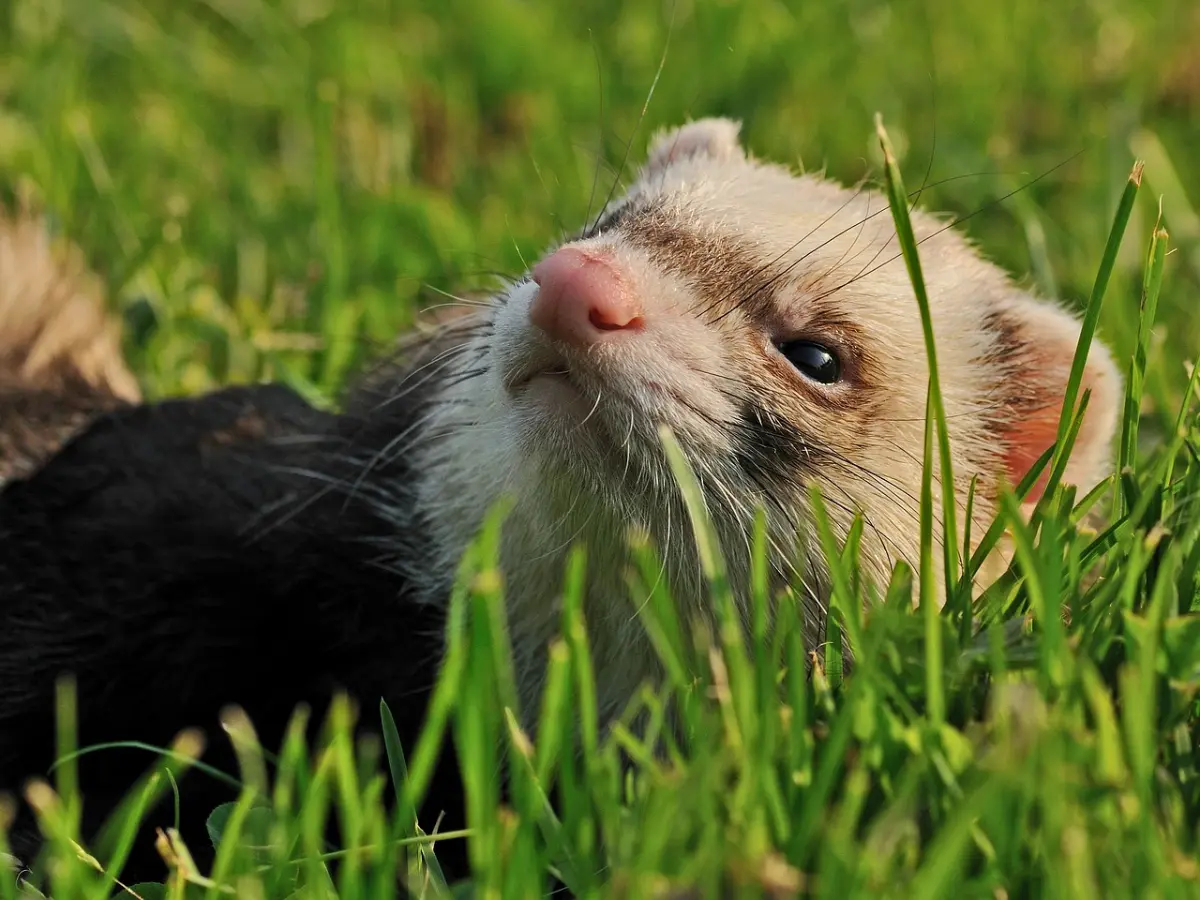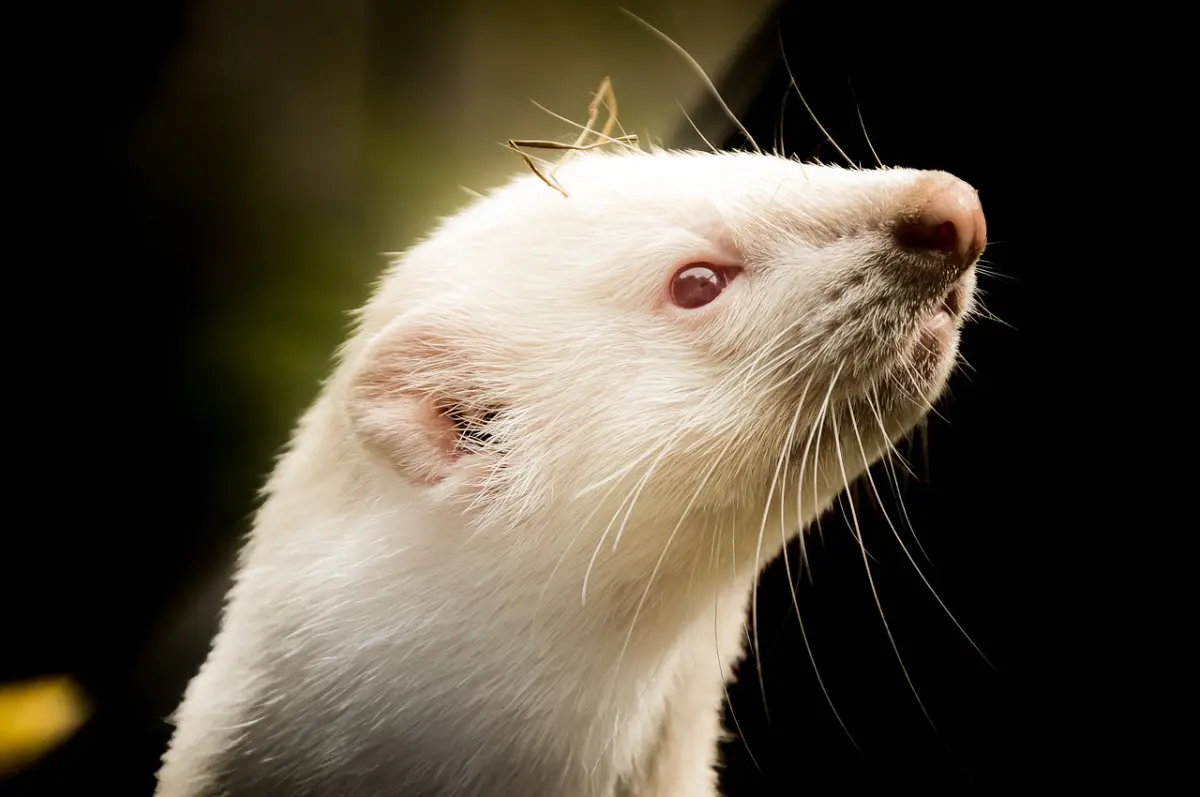Adding ferrets as a pet to your home can be a delightful addition to any family. However, like any animal, ferrets can exhibit aggression and biting behaviors that may be concerning to their owners.
We will be exploring the causes of these, how to identify biting traits, and how to address and prevent these behaviors. Before diving into aggression and biting behavior, it is essential to comprehend the innate traits of ferrets that shape their interactions with humans and their environment.
Ferrets are descended from wild polecat relatives, and as such, they possess certain inherent characteristics. They are curious, energetic, and highly social creatures, often seeking opportunities for exploration and play. These instincts are hardwired into their nature, and while they are domesticated, they retain vestiges of their wild ancestry.

Causes of Ferret Aggression
There are several reasons why a ferret may exhibit aggressive or biting behavior:
- Fear or defensive behavior: Ferrets may bite when they feel threatened or scared. This can occur when they are introduced to new environments, people, or other animals. It is essential to provide a safe and comfortable space for your ferret and introduce them to new experiences gradually.
- Territorial behavior: Ferrets can be territorial animals, especially when it comes to their living space. They may exhibit aggression or biting behavior when they feel that their territory is being invaded or when they are protecting their possessions, such as toys or food.
- Playful behavior: Ferrets are highly playful animals, and they may nip or bite during playtime. While this behavior is generally not aggressive, it can still be painful and should be addressed.
- Hormonal changes: Unneutered male ferrets, also known as hobs, may become aggressive during mating season due to hormonal changes. Neutering your male ferret can help to reduce aggressive behavior.
- Health issues: Aggression and biting can also be a sign of underlying health problems, such as pain or discomfort. If your ferret’s behavior changes suddenly, consult your veterinarian to rule out any health issues.
Identifying Biting Traits
It is essential to recognize the different types of biting behavior to address them effectively:
- Fear or defensive biting: This type of bite is usually accompanied by a hissing sound and a puffed-up tail. The ferret may also attempt to flee or hide.
- Territorial biting: This bite may occur when the ferret is guarding its possessions or space. The ferret may also lunge or chase the perceived intruder.
- Playful biting: Playful bites are usually quick nips that don’t break the skin. The ferret may also engage in other playful behaviors, such as jumping, dooking (happy noise ferrets make), or chasing.
- Hormonal biting: This type of bite is typically seen in unneutered male ferrets during mating season. The bites may be accompanied by aggressive posturings, such as arching the back or puffing up the tail.
Addressing and Preventing Aggression and Biting
To address and prevent aggressive behavior and biting in ferrets, follow these tips:
- Socialization: Proper socialization is crucial for reducing fear-based aggression. Introduce your ferret to new people, animals, and environments gradually and in a controlled manner. Reward your ferret with treats and praise for calm behavior.
- Positive reinforcement: When your ferret exhibits appropriate behavior, reward them with treats, praise, or playtime. This will help to reinforce good behavior and discourage biting.
- Redirecting play: If your ferret nips or bites during play, redirect their attention to a toy or another appropriate object. This will help to teach them that biting is not an acceptable form of play.
- Time-out: If your ferret continues to bite despite redirection, consider giving them a brief time-out in a separate, secure area. This will help to reinforce that biting is not acceptable behavior.
- Neutering: Neutering your male ferret can help to reduce hormonal aggression and biting behavior.
- Regular veterinary care: Regular check-ups with your veterinarian can help to identify and address any health issues that may be causing aggression or biting behavior.
In conclusion, understanding the causes of ferret aggression and biting behavior is crucial for addressing and preventing these traits. By providing proper socialization, using positive reinforcement, and ensuring regular veterinary care, you can help to create a happy companion.
